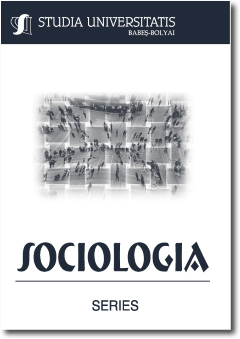THE SACRALIZATION OF ROMANIAN SOCIETY. AN ANALYSIS OF THE PROFANE FUNCTIONS OF THREE ROMANIAN CHURCHES
THE SACRALIZATION OF ROMANIAN SOCIETY. AN ANALYSIS OF THE PROFANE FUNCTIONS OF THREE ROMANIAN CHURCHES
Author(s): Dénes KissSubject(s): Social Sciences
Published by: Studia Universitatis Babes-Bolyai
Keywords: church; counter secularization; secularization; profane social functions; functional differentiation.
Summary/Abstract: This article analyzes the social presence of churches in post-communist Romania. Its main question is how the social role of churches has been shaped in different spheres of the Romanian society. To answer this question, church-based organizations from one region in Transylvania are analyzed. The article proposes a theoretical model according to which the increasing social presence of churches is driven by two different strategies that these organizations employ. The first strategy can be called “the sacralization of public institutions”, and it has the goal of ensuring the presence of the church in public institutions. The second strategy can be labeled as “building its own institutions”: churches become public actors using the elbowroom available in civil society. The essay comparatively presents these two strategies, and argues that both can operate against the functional differentiation of the Romanian society.
Journal: Studia Universitatis Babes-Bolyai - Sociologia
- Issue Year: 54/2009
- Issue No: 2
- Page Range: 123-138
- Page Count: 16
- Language: English

